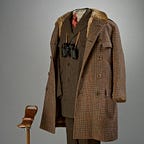A Cold Wind From The East
Russia and Poland rekindle an ancient rivalry.
In 1984 I took a long and solitary train ride across Europe. Leaving from London, I traveled eastward for the better part of two days, crossing into communist East Germany, passing through the Wall in a divided Berlin, before reaching the Oder River on the Polish Border. My destination was Warsaw, the capital of Poland.
In 1984 communist Poland was in a sorry state. Still under the remnants of martial law following the Soviet ordered crackdown on the Solidarity Movement, its economy was in shambles and its people demoralized. Alcoholism and suicide were at all time highs. For Poles, the future looked bleak.
Fast forward to today. The contrast is startling. Poland’s economy is now the 6th largest in Europe. Since the start of the great recession in 2009, Europe’s collective economy has sputtered while Poland’s has grown by double digits. A former Polish Prime Minister has been elected President of the European Council, the first leader from Eastern Europe to hold such a leadership position within the European Union.
But despite their growing prosperity and importance, the Poles are worried. Poland’s winters are always frigid, but today the Poles are feeling an especially cold wind from the east.
Five Centuries of Struggle
For the past five centuries the central geopolitical fact of Poland’s existence has been its relationship to its Russian neighbor in the east. During this time the two countries have struggled over what Polish historian Andrzej Nowak has termed “political, strategic and civilizational preponderance in Central and Eastern Europe.”
Polish fortunes in this struggle have waxed and waned over the centuries, but for the last two hundred years the advantage has been solidly with Russia. In the late 18th Century, the Russian Czars participated in a series of “partitions” which effectively erased the Polish nation from the map of Europe for 123 years. It re-emerged after World War I, only to disappear again as a result of a secret pact between Hitler and Stalin at the start of the Second World War. After the war, Stalin installed the Red Army and a puppet regime which ran the country as a Soviet satellite for the next 45 years.
Soviet rule was harsh. In 1940, 20,000 Polish officers and civilian leaders were taken to a forest near Katyn in western Russia and other adjacent areas and murdered. In 1956 and again in the 1970s, attempts at popular Polish uprisings were crushed with the aid of the Soviets.
Then came Solidarity, Mikhail Gorbachev and Glasnost. With the unexpected collapse of the Soviet Union a new, independent Poland was born.
Today, this new Poland is a full member of NATO and the European Union. Seizing the opportunity created by Russian disarray and weakness immediately following its independence, Poland moved quickly to integrate itself into the political, military and economic structures of Western Europe.
It proved a prescient move. As events in Georgia and Ukraine have shown, Russia is once again willing to resort to military force to impose its will on its nearest neighbors, those in a region it calls its “near abroad.” It is this that most concerns the Poles. They fear that after Ukraine, Poland is the most important target of a revanchist and nationalistic Russia.
Urging NATO to do more
Given this fear, the Poles have urged NATO and the west to respond forcefully to Russian aggression. In response to the Russian seizure of the Crimea in April 2014, the Polish Foreign Minister requested that NATO move two brigades of heavy armor, consisting of over 10,000 troops, permanently onto Polish soil.
NATO and the west, however, have responded cautiously to Polish requests. A number of western European governments fear that placing forces nearer the Russian border will only exacerbate the underlying causes of Russian aggression. Indeed, the leaders of Germany and France have opposed even supplying arms to the outgunned Ukrainians, apparently preferring a negotiated de facto acceptance of the Russian advances.
It is within this context that the election of former Polish Prime Minister Donald Tusk as the new President of the European Council is important. Tusk made it clear following his election that coordinating a firmer response to the threat posed by a belligerent Russia was a goal for his Presidency. In an interview at the time he stated that the EU has been slow to realize that “Russia is not our strategic partner, Russia is our strategic problem.” Since taking office the European refugee crisis, the threat posed by ISIS and Brexit have dominated his agenda. It remains to be seen if this leader from what was once called “the other Europe” can help forge a consistent and credible western European response to Russia’s expansionist tactics.
Listening to History
It is true that Poland, and much of the Europe I crossed by train 30 years ago, have changed dramatically. Internal borders are completely open. Gone are the armed guards who came into my train cabin in the night to check my papers while their dogs went under the carriages looking for hidden persons.
And yet, despite these massive changes, there are still some constants in the European landscape: northern winters are just as frigid, and Poland is still there, warning us of the latest chilling wind from the east. If history is a guide, we should listen.
(First published December, 2015)
John Hunter is an attorney and banker who has worked in both Europe and the United States. As a law student in the mid-1980’s he studied Eastern European political and economic structures in Warsaw and Poznań, Poland, with the Kosciuszko Foundation.
